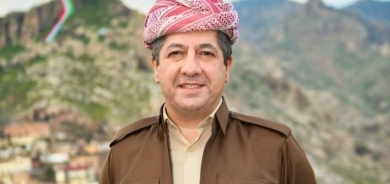Renewed Hope for Peace as Turkey and Kurdish Leaders Signal Possible Talks Amid Escalating Tensions

Political developments in Turkey suggest a renewed possibility for peace talks between the Turkish government and the Kurdistan Workers' Party (PKK) as prominent Kurdish figures and Turkish officials signal a willingness to negotiate. However, this optimism was met with a violent setback on Wednesday when an attack on Turkish Aerospace Industries (TAI) in Ankara killed five people and wounded 22 others. Turkey blames the PKK for the assault, which has led to intensified military responses.
Kurdish politician Mesut Tek, former president of the Kurdistan Socialist Party (PSK) in Turkey, told Rudaw that the PKK is unlikely to disarm without assurances from Ankara. “Before the PKK lays down its arms, it has to know what Turkey will offer Kurds, especially the PKK itself, in return for disarmament and the halt of the war,” Tek said. He added that the PKK, with influence across Syria and parts of Iraq, remains “strong” and is in no position to surrender its weapons without meaningful concessions.
Turkish Leaders Signal Historic Changes
The recent peace discussions gained momentum after Nationalist Movement Party (MHP) leader Devlet Bahceli met with MPs from the DEM Party (Peoples’ Equality and Democracy Party), a pro-Kurdish group he previously opposed. In a bold move, Bahceli suggested that jailed PKK leader Abdullah Ocalan be permitted to address the Turkish parliament and potentially announce the group’s dissolution.
“If the isolation of the terrorist leader [Ocalan] is lifted, let him come and speak... Let him proclaim that terrorism has been completely eradicated and that the organization has been dissolved,” Bahceli said. The government allowed Ocalan to meet with his family this week, the first face-to-face meeting since 2020, which his nephew, DEM Party lawmaker Omer Ocalan, confirmed on social media. Ocalan reportedly indicated he has the "theoretical and practical power” to lead the PKK toward peace.
Peace Efforts Tempered by Ongoing Violence
The calls for peace were momentarily overshadowed by the Wednesday assault on TAI’s headquarters in Ankara. In response, Turkey launched airstrikes on PKK targets in northern Iraq and Syria, with 32 “terrorist” targets reportedly neutralized, according to Turkish authorities. Turkish forces continued bombardments on PKK positions in Syria’s Rojava region Thursday, underscoring the volatility of the situation.
The DEM Party’s spokesperson, Aysegul Dogan, condemned the Ankara attack and called for an end to hostilities. “War, conflict, and violence are not a solution,” she stated. “The Kurdish issue in Turkey will not be resolved by ignoring, denying, or treating it as a security problem.”
PKK Demands for Ocalan’s Involvement in Peace Process
The PKK leadership echoed calls for a peaceful resolution but insisted that Ocalan’s role is pivotal. The organization, which has fought the Turkish state since 1984 with an initial aim for independence before shifting to calls for autonomy, reiterated that no discussions can proceed without full guarantees for Ocalan’s participation. PKK commander Murat Karayilan emphasized that any peace process must “center on the freedom of Leader Apo [Ocalan].”
Political analyst Abdurrahim Temel believes that preparations for peace talks have been underway for over a year, with letters and communications exchanged across PKK strongholds in Iraq and Syria. Temel, who was involved in the 2013 peace process, revealed that a larger regional strategy involving Kurdish alliances across the Middle East is reportedly in development, underscoring the strategic significance of Kurdish unity for regional stability.
A Tentative Path Forward
Leyla Zana, a veteran Kurdish politician and former political prisoner, expressed cautious optimism on social media, describing the recent moves as “a ray of hope” for those who long for peace.
With the violence of recent days casting a shadow over potential negotiations, the possibility of a historic peace agreement remains delicate. Political leaders and analysts alike underscore that while the prospects for peace are fragile, they are perhaps closer than at any point in recent years.














